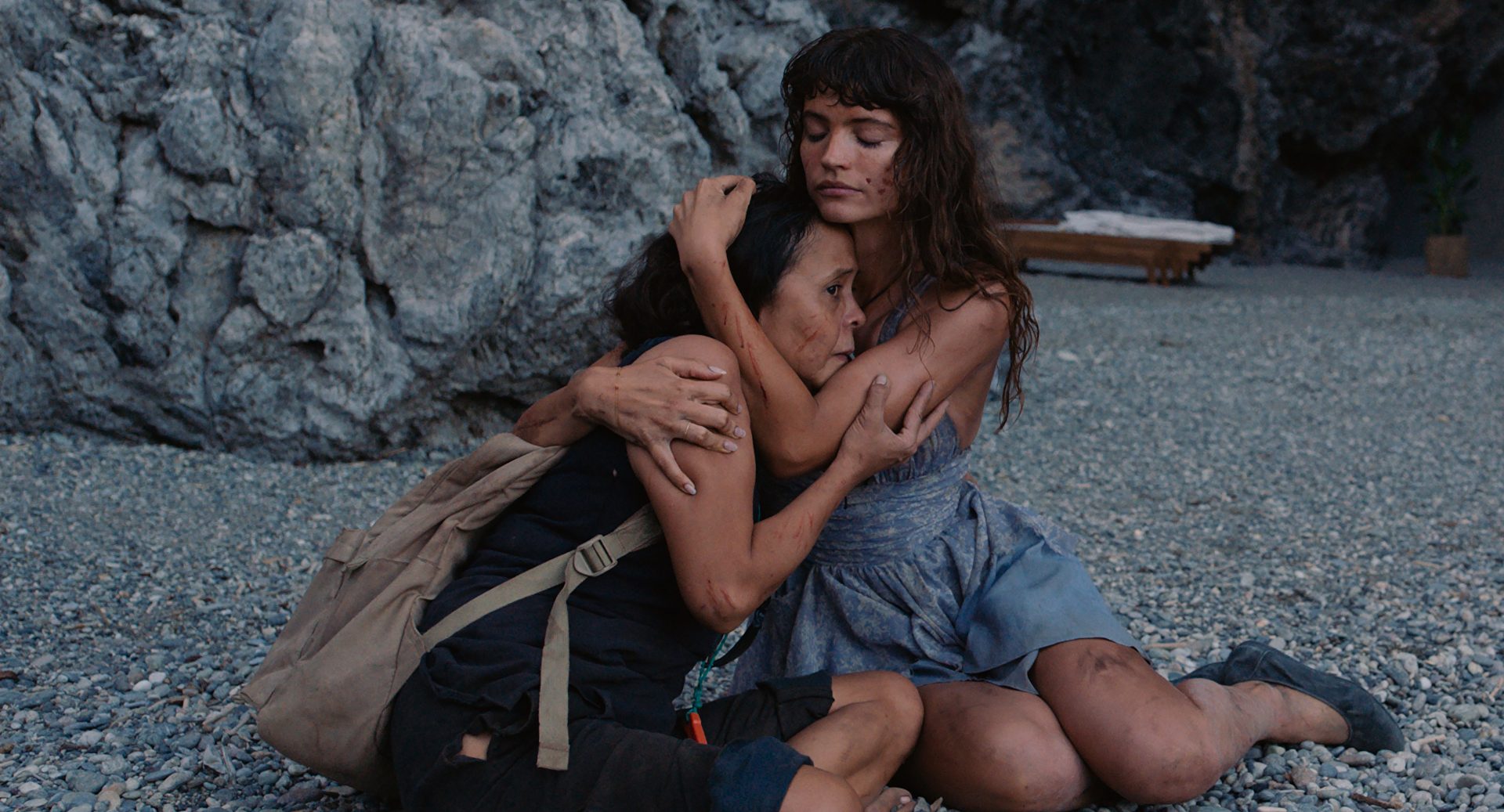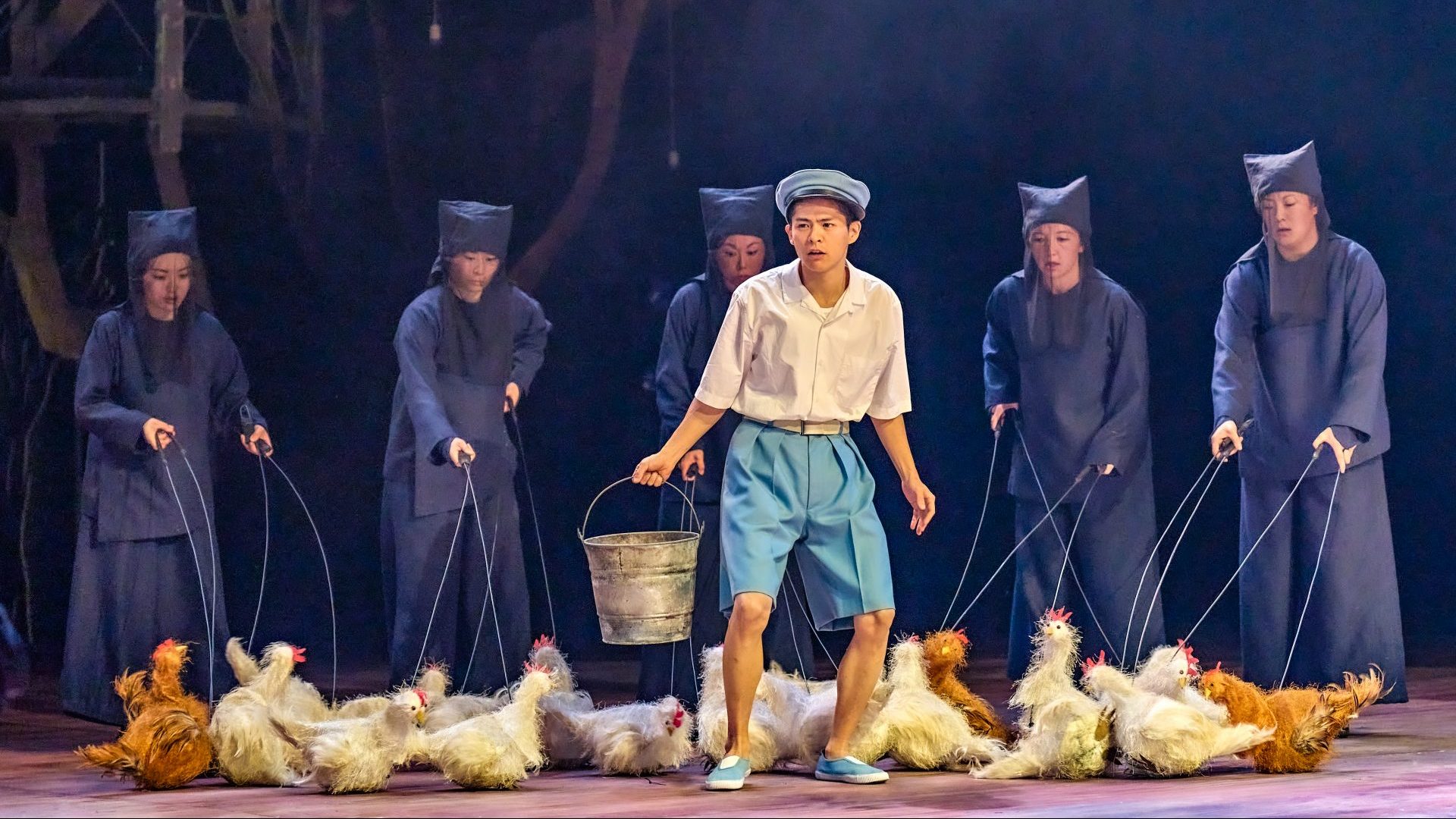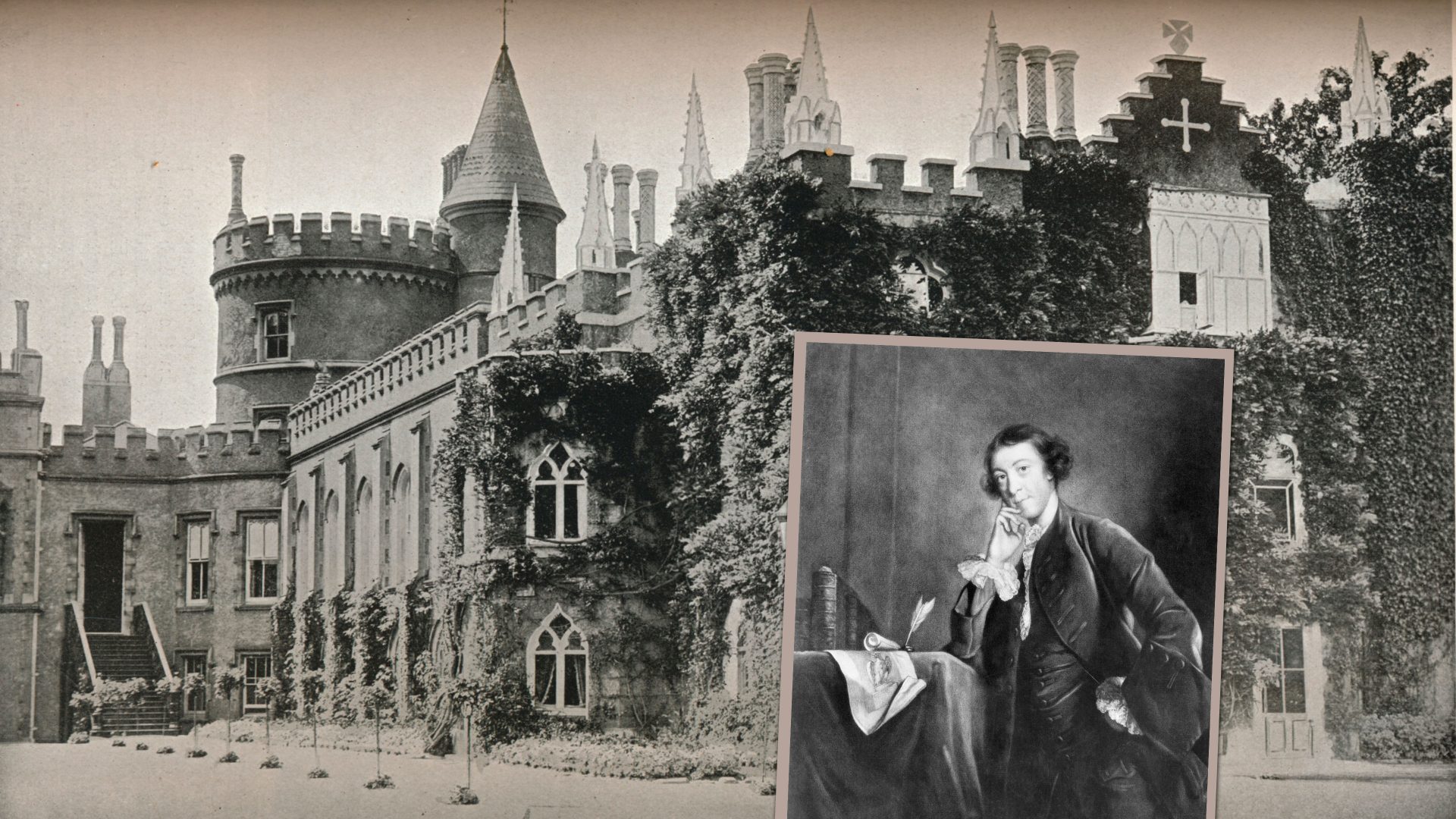When Ruben Östlund celebrated winning his second Palme d’Or at Cannes in May, the final word in the title of his film seemed very far away.
Triangle of Sadness – a satirical film about a cruise for the uber-wealthy that goes disastrously yet hilariously and grossly wrong – takes its title from the little frown lines between the top of the nose and the eyebrows; age marks that male and female models get Botoxed away or at least airbrushed out of their magazine and billboard shoots.
Yet real sadness and grief was lurking for Östlund, who previously won at Cannes with The Square in 2017. In late August, the news broke that its break-out star, actress Charlbi Dean, had suddenly passed away at the age of 32.
The South African model making her acting debut in the movie is sorely missed as the film begins its international rollout in time to hit the awards circuit. “There’s always an empty seat at our table now,” says Östlund, who dedicates the film to her memory before each screening that he introduces. “This film is an ensemble piece and Charlbi was a real team player, which makes all this very hard and sad.”
I met Charlbi in Cannes for an interview that feels impossibly sad to listen back to now. Her death remains unexplained, but she was so full of hope and life and smiles, petting her dog and looking forward to her marriage and honeymoon with her fiancé who’d come with her to Cannes.
She was eager to learn and was plotting the next steps in her acting career, rather overwhelmed by the Cannes circus and fervent reception for the film. “Walking the red carpet in Cannes is nothing like the model runways I’ve been on for years,” she said. “I wasn’t prepared for that, or for so many people watching me on the big screen.”
She was, she said, looking for a career in arthouse films having discovered, in Cannes, a whole new world of movies she never knew existed.
Triangle of Sadness is a bit of mischief, a characteristically impish piece designed for maximum impact by the precision-tooled ironist that Östlund has, quite deliberately, become.
Charlbi plays half of a celebrity fashion model couple, partnered with British actor Harris Dickinson, who are invited on board the Mediterranean cruise so that she can Instagram about it to her millions of followers, a virtual throng of which the male model is jealous.
In fact, the financial and commercial imbalance in the model couple’s relationship is a miniature of the upheavals to follow, when the ship navigates straight into a storm and the drunken captain (played by Woody
Harrelson) seems oblivious to the danger, even as his super-rich passengers begin vomiting and defecating while clinging to the dinner tables and railings in the film’s standout scene.
These extended emetics are now part of the Östlund cinematic lexicon, the sort of provocative satire that stretches back to Buñuel, whose films such as The Discreet Charm of the Bourgeoisie and The Exterminating Angel come to mind, along with a hefty whiff of Blazing Saddles. The scene in Force Majeure, when the avalanche is heading towards the family in the mountain restaurant; the scene at the art world fundraising gala in The Square in which Terry Notary’s performance piece as an ape goes wildly out of control and he jumps on the tables. These are excruciating moments of moral conundrums,
sociological experiments for the audience to grapple with, and the crux of Östlund’s messages.
“I took a decision coming back from a film festival one year,” he tells me. “I was with half the film industry on this flight, from Venice to Toronto, and I looked at all their screens and here they were, having presented these serious movies at a festival, and they weren’t watching arthouse movies at
all, but Adam Sandler movies and cartoons.
“And I realised that perhaps my ambitions were wrong. So I set out to make films with more attractive settings – a ski resort, a beautiful art gallery, a luxury yacht and sunny island with fashion people – that might be in the American tradition of attracting an audience and I could blend it with the European tradition of cinema that is art and that discusses politics and societal issues.”
It’s a potent mix that has led to unparalleled success. Östlund has now joined the exclusive club of double Palme d’Or winners (Emir Kusturica, Ken Loach, Michael Haneke, Bille August, Shōhei Imamura, Francis Ford Coppola, the Dardenne brothers). Does he now have the record-breaking hat-trick in his sights?
“Well I was very shocked to win again,” he says. “But obviously I was in the room at the prize ceremony so you are practical enough to think you are going to get something and the night goes on and the prizes are given out
and your name is still not read out and you think: ‘Well there’s only one prize left so either they called me back for nothing or… oh my god, I’ve won the Palme d’Or again…’ I was for a brief moment filled with fear: do I really want to go through this again? But that was for a second, and then I was very happy.”
Is there pressure on him now, to up his game? He recounts that it was easier to get the budget for Triangle of Sadness as a previous Palme d’Or winner but that success brings dangers. Financiers want to see more stars, more polished pitches. “And here I was, making a satire of the rich, trying to pitch that to billionaires was not easy, even if they pretend to be sympathetic to the idea. They get very defensive of their positions, and find ways to see the system as very complicated. They get very offended by the idea of paying taxes, for example.”
He certainly has the next film lined up, and I get the full spiel already. It
will be called The Entertainment System Is Down, and set on a plane we know
will crash. His eyes light up as he tells me exactly what will happen – a family split up at the gate because of a forgotten passport, one of a couple
upgraded to business, a whole microcosm of society again – and heated arguments that ensue when the onboard entertainment system fails. In trying to fix it, the plane’s circuitry overloads and they all head to their deaths…
“I like to pitch it by telling the story over and over to many different people, to see their reactions,” he says. “If their attention wavers, I know that bit of the movie isn’t working. So by the time I write the script I’m pretty sure how to keep the elements that people like.”
He also gets some dialogue ideas while he’s casting his net wide for actors, going through a series of meetings and light improvisations, even with the biggest stars who are attracted to working with him and who fancy decorating their careers with a go at a provocative Palme d’Or winning piece. “I get some great jokes or lines from those improvisations, and because it’s three years before any of those gags get to the screen, the actors who gave me them in the improvs, they don’t remember what they’ve said or that I’ve stolen them.”
The other key – and very funny – scene in Triangle of Sadness comes at its
beginning, where the male models are lined up for a photoshoot, practising
their expressions for the camera. When the photographer shouts “H&M” the
models smile; the next command is “Balenciaga” and the models morph their expressions into haughty scowls.
Östlund learned of this fashion-world hierarchy (his favourite word) through his wife, a photographer, and he became fascinated by the way brands want to treat you in order that you might feel part of their “group”, welcoming and inclusive for the cheaper brands, out-of-reach and exclusive the more expensive the merchandise becomes.
“Everything is part of a social group,” he says. “Clothes, holidays, restaurants. It’s all a currency, a transaction. We are not free to behave how we think. In a neoliberal society we think we have a choice of self-determinism, but we are set up to behave in context, dictated to by our environments. That is what I want to explore.”
I guess the movies we choose to watch are part of that, too. Östlund’s brand of sophisticated satires are intelligent, difficult, gross and acerbic. You can love them, find them too much, too on the nose, too prodding, too close to home, too ouch. You can hate the characters in them, but squirm uncomfortably because you recognise them, because they’re your neighbours, your friends – quite possibly, they’re you.
Too many of us will also be able to recognise the shock and pain Charlbi Dean’s family have experienced in the last two months. It may prove some
consolation to them that she will at least be forever part of a European classic.




